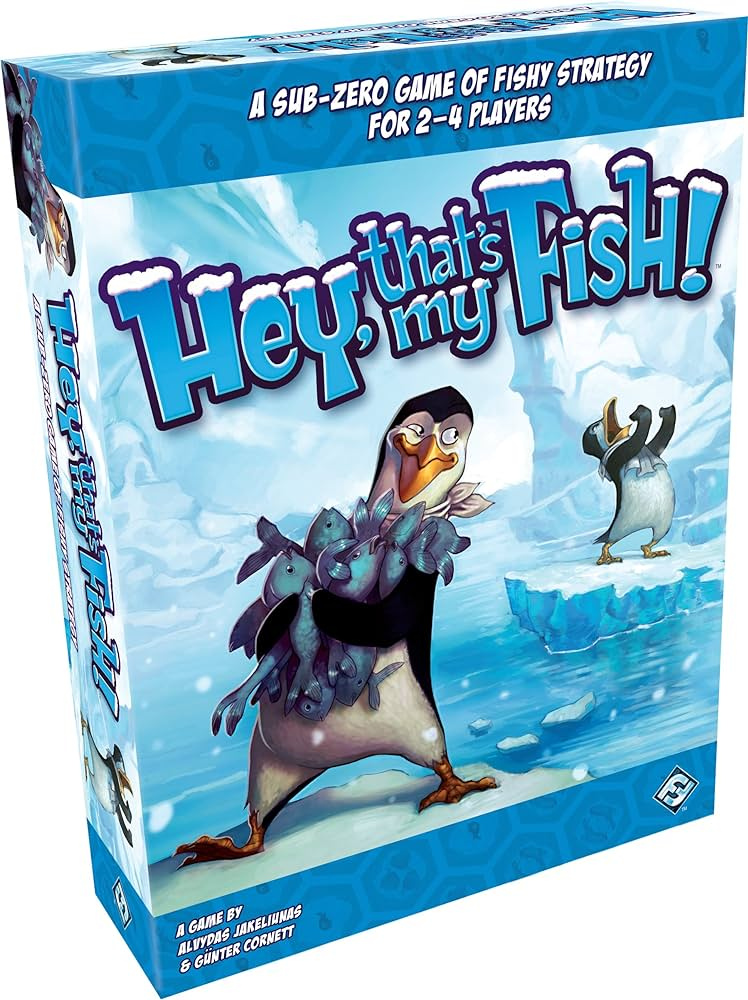Top Stories
Board-gaming in the Age of Isolation
In normal times, when we’re not all inside waiting out a pandemic, physical self-isolation can be both a symptom and cause of depression and alienation.

I sometimes get asked why I didn’t include a chapter on chess in my recently published co-authored book about boardgames. The answer is that since I’m not a chess specialist, I didn’t think I was up to the job. The bar has been set high because chess is the only boardgame in the world that’s already the subject of an enormous, well-established literary sub-genre.
And I’m not just talking about dry analyses with titles like Fire On Board: Shirov’s Best Games and Beating the French Defense with the Advance Variation. There are also plenty of books about the lives of chess grandmasters and the tragicomically obsessive nature of chess culture—including an excellent new specimen called All The Wrong Moves: A Memoir About Chess, Love and Ruining Everything by Canadian-American writer Sasha Chapin.

The author isn’t a particularly great player. But that’s one of the things that makes the book so good: Chapin perfectly captures the daily agony of being a chess obsessive (as I once was) who secretly knows that his brain isn’t wired—and never will be wired—in the way of a true master. You study and you play and you study and you play, only to have your mediocrity smushed in your face on a flight to Europe by a 14-year-old prodigy from Belarus who was literally watching an in-flight movie while he casually demolished you in just 25 moves (just a fictional example, and totally not based on any kind of real humiliation I once endured in the mid-1990s).
As I write this, the tragic news that chess master Arianne Caoili died at the young age of 33 has just broken. She was not only a great player, but also married to an even greater player, grandmaster Levon Aronian, currently ranked 12th in the world. Theirs was one of the few romances that was fuelled by chess. In most cases, as with Chapin, chess can push you away from human connection:
My headlong descent into an Internet chess wormhole did terrible things to my personality. This is because Internet chess is a fertile breeding ground for hatred. When you’re playing someone who isn’t visible, known to you only by their nickname—Schellingford or Buttsex69—your competitive instincts are unmitigated by the basic civilizing effect of the presence of a living person before you.
During one game, which had arrived at a complicated position, I spent ten minutes thinking about what moves I could make—which is not unusual. But my opponent typed, “You are slow delivery.”
“Yes,” I agreed.
“Play move.”
“Don’t feel like it.”
“What cup size your mother?”
This vignette helps explain one reason why board-gaming over the Internet is seen as nerdy and anti-social: It’s often done with complete strangers, and so the experience is prone to degenerate accordingly. But Chapin also gets to another factor: In normal times, when we’re not all inside waiting out a pandemic, physical self-isolation can be both a symptom and cause of depression and alienation. “At some point, I became alarmed that I wasn’t actively seeking human company,” he writes. “I was disturbed by how little my loneliness was affecting me now that I was playing chess… Seventy per cent of my diet was salty snacks in shiny bags. It got to a point where I realized that I was walking quickly around my apartment because I was fleeing my own smell.”
Chapin couldn’t have realized that the publication of his book in fall 2019 would predate, by mere months, the involuntary adoption of a similarly cloistered lifestyle by hundreds of millions of people around the world. Indeed, in this age of COVID-19, we shiny-bag aficionados are pioneers of sorts. And I am dedicating this article to lessons I have learned about both the joys and pitfalls of board-gaming in isolation, with sub-sections on (1) playing boardgames over the Internet, (2) playing boardgames with co-habitants (i.e., family), and (3) solitaire play.
Internet gaming
As Chapin learned, one of the usual downsides of gaming on the Internet—whether it’s a digital adaptation of a boardgame like chess or scrabble, or a traditional dexterity-based video game—is that you’re interacting with strangers. But one of the upsides of being a board-gamer in this age of isolation is that, since your friends likely are isolated, too, you can electronically convene your usual board-gaming group (assuming you have one) using one of the various services that adapt boardgames to digital play. And when you’re playing with your regular friends, it’s unlikely that anyone will ask “what cup size your mother?” (If they do, find another group.)
There are a variety of platforms that allow you to do this. But my favorite is called VASSAL. It’s free (though this is a good time to donate) and you can download it here. Once you have installed the VASSAL software “engine” (as they call it), you can download modules that correspond to your favorite games—which also, typically, are free. (The whole thing runs on Java, which you may have to update if you haven’t done that in a while.) And while you may be skeptical that your favorites could be duplicated on a computer screen without wrecking any of the little fiddly bits and mechanics, I generally have been shocked at how great these implementations work. There’s also a feature that allows non-participants to come spectate on your games (unless you “lock” your channel), a practice that some players find unsettling but which I happen to be fine with.
In my case, I often use VASSAL to play a somewhat involved World War II-themed game called Advanced Squad Leader (ASL), and I can report that the VASSAL adaptation (which, confusingly, is called Virtual Advanced Squad Leader, or VASL), is fantastic. I know some ASL players, in fact, who actually prefer VASL to “real” face-to-face ASL for certain kinds of military scenarios (such as night battles, since the software can show you which areas of the battlefield are illuminated by star shells, incendiary rounds, and gun flashes in a way that would be impossible on your dining room table).
And while it’s true that even the best gaming software can’t entirely prevent a Chapin-style descent into loneliness and dangerously low hygiene levels, getting into the habit of regular VASSAL sessions with friends can help prod us back into something resembling traditional social norms—since many of these games typically invite (or even require) a parallel audio or video connection through Skype or WhatsApp. This is very different from anonymized online chess, wherein personal chit chat is discouraged and communication is confined to terse game-related chat messages.
Tonight, for instance, I will be joining my usual Toronto gaming friends for a session of RoboRally (a fantastic 1994 Richard Garfield creation). The in-game discourse will be conducted through Zoom videoconferencing. Which means we’ll probably engage in non-game-related social chit chat—and be required to wear shirts.
When half the planet went into self-isolation last month, I feared VASSAL’s servers would break down, since usage has surged massively. On the VASL sub-server alone, for instance, a typical weekday late afternoon would probably feature about half a dozen games in progress (and remember that there are thousands of such channels). When I checked late Friday afternoon, I saw 28. Thankfully, the server seems to have held up pretty well as of this writing.

Family gaming
Family board-gaming is tricky for a number of reasons. Firstly, when guests aren’t around, intra-family social dynamics can spiral downward more quickly. And secondly, you’re locked in at a certain number of players corresponding to your family size. There are a bunch of great games out there for both two players, and for four-plus. But three can be awkward.
If your family is full of experienced gamers, then you’re probably not looking for my advice anyway (though I will suggest the aforementioned RoboRally if you’ve never tried it). When families with little gaming experience ask me for advice, on the other hand, I typically tell them to pick a short game—since you’re always going to be bound by the person with the shortest attention span in the room.
I also urge them to pick a game that allows players to operate at different levels of strategic investment. Which is to say: a game that is fun whether or not you are playing casually or thinking hard about every move—since, again, different family members will be looking for different takeaways from the game experience.
The games that hit both of the above-described requirements include Splendor, Hey, That’s My Fish!, No Thanks!, and Can’t Stop, all of which play decently with three or more players.

For families with very young children, I often suggest Skippity as a simple game that also teaches the rudiments of strategy (thanks to its scoring system), or games based on either memory (such as, well, Memory) and immediate visual recognition (Spot It! and SET). And for couples, I often suggest Patchwork—or, if they’re looking for something more challenging, 7 Wonders Duel (not the original 7 Wonders, which is fine for groups, but not for two players).
One common problem that families encounter is that one or more members are either excessively competitive or poor losers. In these cases, I recommend “co-operative” games (as opposed to traditional “competitive” games), by which everyone wins or loses as a group. There aren’t too many good ones in this category, unfortunately (it’s really not my favorite genre). But at the top of the list are the thematically appropriate Pandemic, as well as Hanabi and the new-ish (and extremely simple) card came The Mind.
Solitaire gaming
This whole article was originally supposed to be just about games that work well for one person engaged in solitaire play. But I abandoned that concept when I realized that I couldn’t think up a good headline that didn’t also sound like an autoerotic double-entendre.
Even absent such prurient wordplay, however, solitaire board-gaming does sometimes feel a little wrong—even when your favorite game comes with a respectable solitaire variant. An example here is Terraforming Mars, which I’ve played many times in groups, and exactly once in solitaire mode. It was fun, I suppose. But it also felt weird, since the experience didn’t include any of the interpersonal dynamics that attend “normal” gameplay.
That’s why the best solitaire games, I find, are those whose gaming dynamics are inherently solitary—even when you’re playing with a large group of people. That may sound paradoxical, but it will make sense to those who have played games in the so-called “Roll and Write” genre. A venerable example here is Yahtzee, which provides players a roughly similar gaming experience whether it’s one person playing, or 10.
Often, the “roll” part is figurative, since some of the best games don’t involve dice at all, and instead create random challenges through card draws. My absolute favorite is a 2018 title called MetroX, the creation of A-list Japanese designer Hisashi Hayashi (of Yokohama and Trains fame).
The idea here is that events come up unpredictably, and you have to figure out a way to incorporate new cards into your personal game-board—by writing their values down on a sheet of paper, as in Yahtzee—in a way that will optimize your score at the end of the game.
In MetroX, the cards represent different kinds of subway-line expansions, which you use to build out maps of the Tokyo or Osaka rail system. In Welcome To…, the concept is similar, but instead it’s houses being built in a suburban neighbourhood. And if you’re looking for something that’s a more direct take on the abstract Yahtzee concept, a 2018 title called That’s Pretty Clever is sitting at the number-two position on BoardGameGeek’s “Top Roll-and-Write” chart. I’ve never played it, but I am drawn to it because I like its original German name so much (Ganz Schön Clever).
One final point: The biggest turnoff for many new board-gamers is the rulebook. Which is why I usually suggest that when you play a new game (especially in a family setting), at least one person has taken the time in advance to really master the rules. Nothing taxes players’ attention more (especially in the case of young children) than frequent and prolonged breaks to look up rules.
But there’s a shortcut: Many boardgame fans love making videos that explain the rules to their favorite games. And the web is crawling with them. One efficient way of learning game rules is to watch one of these videos before diving into the rulebook. In some cases, you can actually avoid reading the rulebook altogether.
But be careful, as these videos vary immensely in production quality and comprehensibility. At Watch It Played, for instance, Rodney Smith does a good job explaining Terraforming Mars in 30 well-scripted minutes. And for especially complex games, I rely on Edward Uhler at Heavy Cardboard. On the other end of the cinematic quality spectrum is David Dockter trying to explain how to play the new version of his own game, Triumph of Chaos: The Russian Civil War, 1918-1921. Not only did the camerawork make me nauseous, but the instructions somehow left me even more confused—even though this is a (great) game that I’ve already played.
Then again, a full game of Triumph of Chaos takes my friend and I about 10 hours to play. So if you’re a beginner, maybe, for now, just start with Skippity and work your way up.






